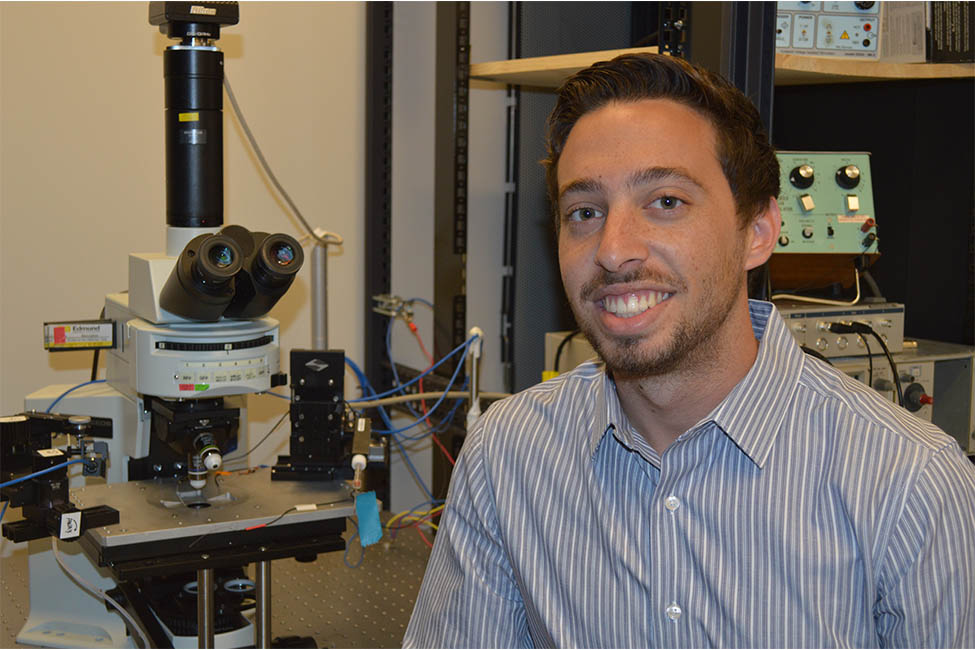FAU Honors Student Receives NIH Diversity Grant
FAU's Wilkes Honors College senior Roberto Hernandez was awarded a research supplement from the National Institute of Neurological Disorders and Stroke (NINDS) of the National Institutes of Health (NIH).

Roberto Hernandez in the lab of Greg Macleod, Ph.D., where he will continue working for 12 months after graduation with support from National Institute of Neurological Disorders and Stroke (NINDS).
Florida Atlantic University Harriet L. Wilkes Honors College senior Roberto Hernandez, 22, recently was awarded a “Research Supplement to Promote Diversity” from the National Institute of Neurological Disorders and Stroke (NINDS) of the National Institutes of Health (NIH). Hernandez is currently working at the John D. MacArthur Campus in Jupiter under the direction of Greg Macleod, Ph.D., associate professor in FAU’s Charles E. Schmidt College of Science, as a research assistant, and the grant will cover his salary and benefits for a full 12 months after he graduates from the Wilkes Honors College in May. Born in the small town of Caimito, Cuba, Hernandez came to the United States with his family at 6 years of age. He grew up in Miami and decided to attend FAU’s Wilkes Honors College because of the many opportunities offered to study neuroscience and medicine.
“The most rewarding part of my work at FAU is being exposed to the vast amount of research within the field of neuroscience that facilitates my growth as a scientist,” said Hernandez. “I chose this college for the its focus on science and its many opportunities in the field, such as being able to intern in two of the most prestigious research institutions – Scripps and Max Planck.”
Hernandez will be working under Macleod’s existing NIH grant titled, "Neuronal Mechanisms Controlling Number and Function of Presynaptic Mitochondria.” The research focuses on how the mitochondria, the power houses of the cell, influence the release of neurotransmitters from nerve endings. The release of neurotransmitters are affected when health deteriorates in many neurodegenerative diseases such as Parkinson's, Alzheimer’s, and Huntington’s.
“The sort of work that will be fueled by Roberto’s award has a greater potential for discoveries in neuroscience,” said Macleod. “It contributes to our research by allowing the lab to do more exploratory work. We will be able to conduct experiments that we wouldn't otherwise get a chance to attempt.”
This research is supported by the National Institute of Neurological Disorders and Stroke of the National Institutes of Health, Diversity Supplement NS061914. For more information on FAU’s Jupiter Life Science Initiative and related neuroscience programs, visit www.fau.edu/JLSI .
-FAU-